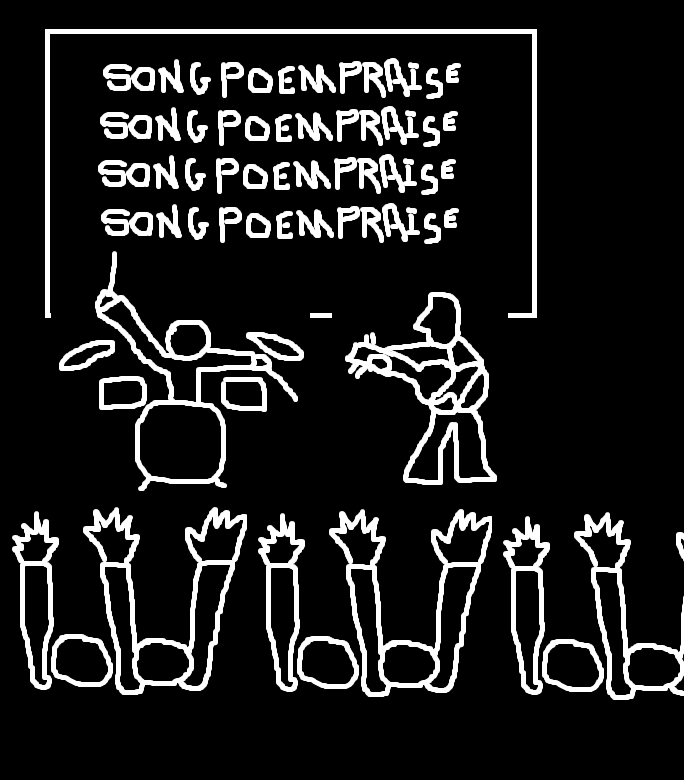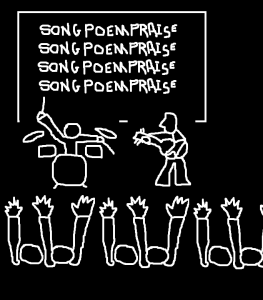Why Men have Stopped Singing in Church
In a recent post, David Murrow explains “[w]hy men have stopped singing in church.” He says that there are some positives in the switch from hymnal to the projection of lyrics onto a screen in front of the sanctuary, but he concludes that “the negatives are huge.”
One of these negatives is that “[s]ongs get switched out so frequently that it’s impossible to learn them. People can’t sing songs they’ve never heard. And with no musical notes to follow, how is a person supposed to pick up the tune?”
[W]e went from 250 songs everyone knows to 250,000+ songs nobody knows (Murrow).
I experienced some frustration this past Easter for this very reason. The songs that were chosen for the Easter service were all appropriate thematically, but almost all were new to me. I’m pretty quick to catch onto songs, so it wasn’t really an issue of not being able to sing them. I am obviously not the same as the men who don’t sing in the Murrow post. But there was something else that I realized that we’ve lost since hymnals have become obsolete.
And it has to do with the way we view time.
Higher Time
In our culture, we understand time to be exclusively chronological. So much so that many who are reading this are saying, “Well, what the heck else would time be?” Chronological time, or “secular” time, is the idea that one thing happens after another. There is no meaning behind this ordering of events–it is ordinary time.
Higher time (kairos) is infused with meaning. It doesn’t replace ordinary time but complements it.
Higher times “gather and re-order secular time” (Taylor 55). If you think of chronological time as a long rope, higher time takes that rope and ties it in a knot so places on the rope that are usually further apart, are now touching. These “kairotic knots” (54) meaningfully reorder time.
So, your birthday 2013 is closer in kairos time to your birthday in 2012, than it is to the other days that lie between them. This is because your birthdays all share the same meaning and the ordering of kairos time is one of meaning.
In the secular world, this is the only sort of time there is and I think we lose something if we view time as a mere sequence and neglect this other way of experiencing higher time.
Praise and Worship Singing and Higher Times
What does this have to do with praise and worship songs? I think the songs we sing in church can go a long way in helping us to experience higher time.
Back when we sang from a hymnal, we’d sing the same songs every Easter In this way, the songs helped to connect all this Easter with every Easter I was alive for. But all these Easters were connected to every Easter all the way back to the first when Jesus asked Mary Magdalene, ” Who were you seeking?.”
The principle is the same with Christmas. We also sang the same songs at every funeral, and after the offerings were collected. The songs linked these events to each other in higher time.
The modern, secular view of reality is an impoverished view. This view of reality ought to be countered at every point if people are going to experience a life of fullness available in Christ. Certainly, the songs that we sing can help us to experience time as meaningful, but all aspects of communal worship can be looked at.
Perhaps a little more attention given to the traditional church calendar is worth a look.
In my series The Poetry of Worship, offer ways we can improve the lyrics of the praise and worship songs we sing. More importantly, I explain why we ought to.






